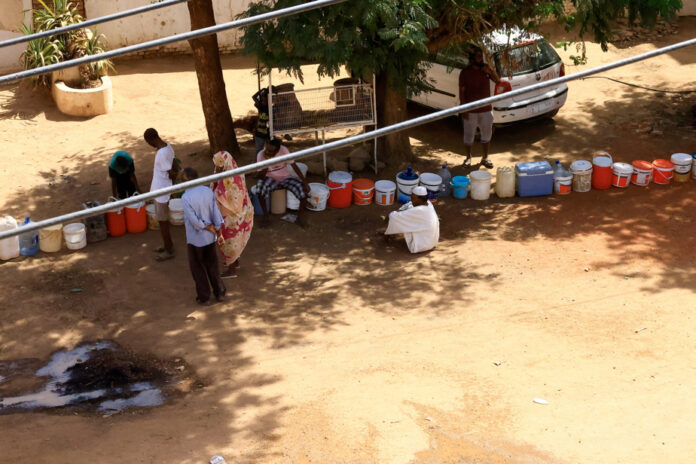(Geneva) The WHO is carrying out a health risk assessment after one of the fighting parties took over a laboratory in the Sudanese capital, where samples of highly contagious pathogens including measles were found, it said. she stated on Wednesday.
The World Health Organization, which on Tuesday had alerted “of the enormous biological risk”, is “concerned by the occupation of the central public health laboratory by one of the parties to the conflict”, declared the director general of this UN specialized agency, Dr. Tedros Adhanom Ghebreyesus, during a press conference in Geneva.
“Technicians no longer have access to the lab, which means the lab is no longer able to perform its normal diagnostic and referral function. We are also concerned that people occupying the lab could be accidentally exposed to the pathogens stored there,” he said.
The WHO is seeking more information and is “conducting a risk assessment”, Dr Tedros said.
Alongside him, Dr. Michael Ryan, Head of the WHO Health Emergencies Programme, clarified that “the team on the ground, as well as our biohazard and biosecurity teams, are carrying out” this “in-depth risk assessment”.
Sudan’s Central Medical Laboratories Committee confirmed on Wednesday that “the National Health Laboratory and Blood Bank have been evacuated and strategic blood stocks have been transferred to other provinces.”
“Targeting them could lead to a health and environmental catastrophe with unimaginable consequences,” the committee said in a statement.
According to the WHO, this laboratory contained samples of the pathogens of measles, cholera and poliomyelitis.
Dr Olivier le Poulain, one of the leaders of the WHO’s response to the Sudanese crisis, told reporters on Wednesday that there were also samples of SARS-CoV-2 (the virus responsible for COVID-19) and tuberculosis, especially multidrug-resistant tuberculosis.
The capture of this laboratory is not the only health risk that Sudan currently faces.
“At present, the main danger to the health and well-being of the Sudanese population is the lack of access to drinking water and food, and the risk of being injured by weapons, tanks and other weapons that are used indiscriminately in civilian areas,” Dr. Ryan observed.
In Khartoum, Dr. Tedros noted, 61% of health facilities are closed and only 16% are functioning normally.
“Many patients with chronic diseases, such as kidney disease, diabetes and cancer, do not have access to health facilities or the medications they need,” he said.
Deadly fighting in Sudan has already claimed hundreds of lives.
Dr Tedros pointed out that the WHO expects that there will be – in addition to those killed during the clashes – “many more deaths caused by epidemics, lack of access to food and water, disruption of health services, including immunization”.
The WHO has stocks of essential drugs, blood bags and surgical equipment, but the organization says it needs better security conditions to be able to transport them.


















